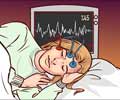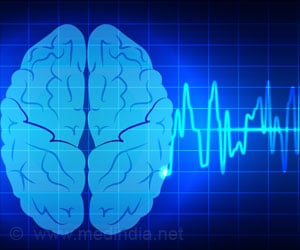
‘A new study finds the reason behind people having nightmares and angry dreams, and it may be due to an imbalance between two regions of the brain. People with greater frontal alpha asymmetry are less able to regulate strong, emotional, affective states, such as anger, in their dreams.
’
Read More..Tweet it Now
Although emotions are experienced during both the waking and dreaming state, few studies have investigated the brain mechanisms underlying the affective component of dreams. Read More..
Doctoral Candidate in Psychology Pilleriin Sikka alongside other researchers from the University of Turku in Finland, the University of Skövde in Sweden, and the University of Cambridge in the United Kingdom discovered a shared emotional mechanism between the two states of consciousness.
The researchers obtained electroencephalography recordings from participants during two separate nights in a sleep laboratory. After five-minute bouts of rapid eye movement (REM) sleep, participants were woken and asked to describe their dreams and rate the emotions they experienced in the dreams.
"We found that individuals who displayed greater alpha-band brain activity in the right frontal cortex as compared to the left during evening wakefulness and during REM sleep experienced more anger in dreams. This neural signature is known as frontal alpha asymmetry (FAA)," explains Pilleriin Sikka, who is the main author of the study.
Alpha-band brain activity refers to brain waves with a frequency of 8-12 Hz, and they are especially prevalent during relaxed wakefulness. Alpha waves are thought to reflect the inhibition of underlying brain areas. More alpha waves in the right frontal area thus indicate lower activity in that brain region.
Advertisement
The research could potentially help to understand the neural basis of the emotional content of nightmares, a feature of various mental and sleep disorders. It also opens up new questions as to whether it would be possible to modulate emotional experiences in dreams by stimulating the frontal brain areas using brain stimulation techniques.
Advertisement














